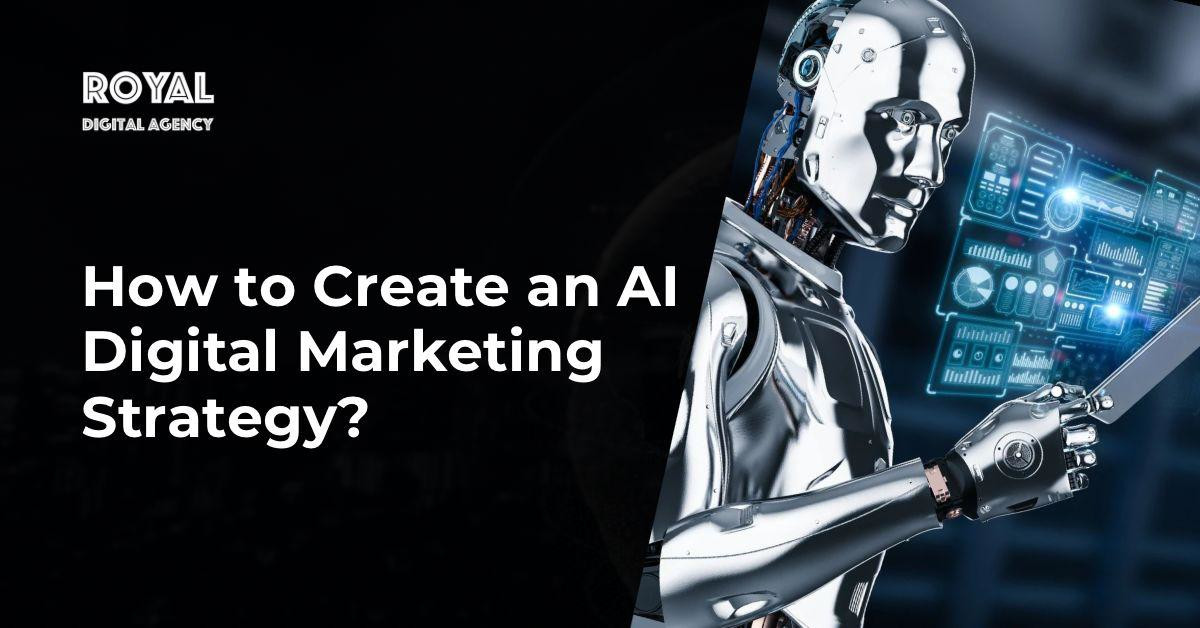AI digital marketing strategy is a way of coming up with an AI enabled plan to integrate these AI tools and techniques into your existing marketing efforts to boost efficiency, personalize customer interactions and yield better results. What we are talking about is using the power of AI to automate tasks, gain more information on customer behavior and optimize campaigns in real time.
According to a recent Salesforce study, 51 percent of marketers are already using AI, and by 2025 that number will grow to 75 percent. This highlights why AI is such a big deal in the digital marketing space. Using AI will automate repetitive tasks like content creation and social media posting leaving marketers to execute high value activities. Both AI empowered analytics and analytics powered by AI can help marketers learn about customer behavior as well as personalizing content and offers and subsequently raising engagement and conversions.
Partnership with a digital marketing strategy agency that understands the many nuances of AI can be invaluable as it allows for staying competitive in this rapidly changing environment. Reshaping your marketing strategy for a digital agency through the use of AI is essential, whether you’re a digital B2B marketing agency trying to optimize lead generation or a digital AI marketing agency trying to fine-tune your AI driven strategies. Using AI, you can design an effective social media strategy for your digital agency that personalized delivers content for the audience, engagement is effective, and your results are valuable.
AI Revolutionizing Your Digital Marketing Strategies
But the digital marketing landscape is moving so quickly—what’s hot today will be obsolete tomorrow. So you have to be on the ball with the latest technologies. Artificial intelligence (AI) in a breath-taking way changes how businesses interact with their audience in a personal, automated, and data driven way. If you integrate AI into your digital marketing strategy. You can tap new levels of efficiency and achieve new levels of engagement and ROI.
What is an AI digital marketing strategy?
Companies use an AI tool or multiple AI tools for little or specific tasks like content creation or ad optimization. But an actual AI digital marketing strategy is more comprehensive than this. To put it simply it’s about bringing AI into the fabric of your marketing model. Using it to improve every step of the customer journey and to deliver massive improvements in efficiency and effectiveness.
A marketer intends to follow a nicely laid out AI strategy using AI to help the marketer reach the desired KPI and business targets. It involves upskilling marketing teams to understand and utilize it.
AI across various areas, including:
- Personalized Customer Experiences: Because it can work through enormous amounts of data. AI can analyze and build incredible customer profiles that can serve to create customized content, make product recommendations or send targeted offers.
- Content Optimization: Tools powered by AI can analyze content performance, foresee trends around content, and give ideas on how to improve content for the engagement and SEO.
- Predictive Analytics: AI algorithms forecast future trends, customer behavior. So we’re capable of running proactive marketing campaigns and allocate the resources optimally.
- Automated Decision-Making: AI can do the thinking work – ad bidding, campaign optimization, or lead scoring. While we can focus on the strategic work.
That’s clear, but many businesses are late to the AI adoption party. A 2024 DMI Member Survey revealed that 37 percent of companies do not have an AI strategy and 54 percent of marketers believe their team is lacking the AI skills needed. It points to the critical importance for businesses to train in AI and create integrated plans to fully leverage the promise of this radical technology.
Working with a digital AI marketing agency allows businesses to access the knowledge and necessary tools for them to create and deploy a proven AI driven strategy. If you are a digital B2B marketing agency or building a social media strategy for a digital marketing agency, then integrating with AI is essential to be competitive in today’s fast paced market.
What AI Digital Marketing Tools Should You Use?
Versatility is one of the most exciting uses of AI in marketing. And AI tools can transform your digital marketing strategy in terms of automating annoying tasks or predicting future trends. A recent corporate AI marketing report named the following three benefits, highlighting the highest peaks of AI in marketing: automation – 68%, better customer experience – 46%, and better targeting – 45%. Marketers can greatly streamline their workflows with many AI powered tools and get better results.
AI Tools to Automate Routine Tasks:
AI is being used by many of those same popular marketing platforms to automate repeatable tasks so that Marketers can spend more time working on strategic initiatives. Here are a few examples:
- Mailchimp: It automates email campaigns, segmentation and A/B testing.
- Google Ads: In automated bidding, targeting and budget optimization, Google Ads makes use of AI. This leads to the ads.
- HubSpot: Being one of the CRM’s, it automates email marketing and lead management to facilitate great customer engagement.
- Drift: An AI chatbot that automates customer support as well as lead nurturing in realtime.
- Canva: Provides With AI-powered visual content creation features.
- Zapier: It connects apps with workflow automation across platforms, things like data entry and lead generation.
AI Tools to Improve Customer Experience:
Inclusion is a given in today’s competitive landscape; the only question is how well you can deliver exceptional customer experiences. It can help personalize interactions and streamline support:
- Zendesk: Gives AI powered chatbots, customer ticketing system support, and automated response to help in getting your customer support in order.
- Intercom: Support, onboarding and engagement with chatbots through automations.
- Kissmetrics: That uses AI to analyze your customer data and insights into their behavior and brand interaction.
- Zoho Desk: Combines live and other AI-powered communication from across different channels into a unified, single customer support platform.
AI Tools for Targeting and Segmentation:
It excels at analyzing data to create detailed customer segments, enabling personalized marketing campaigns:
- Salesforce Marketing Cloud: Examines customer data, breaks down audiences, and sends customized messages.
- Blueshift: It combines AI and real time data for segmentation, predictive behavior analysis and targeted campaigns.
- Optimove: Identifies patterns of behavior and uses AI to build dynamic customer segments so you can automate personalized campaigns through predictive analytics.
AI Tools for Predictive Analysis:
AI algorithms can sift through massive datasets to identify trends and predict future outcomes:
- Rapid Miner: It builds predictive models for customer insights and forecasting business.
- H2O.ai: Covers uses of AI and machine learning for predictive modeling including churn prediction and financial forecasting.
- Talkwalker: The trends analysis and alerts are powered by AI.
- TrendKite: Gives adjacencies on the probable trends in marketing campaigns.
- IBM Watson: It offers the latest predictive analysis, technology forecasting, consumer behavior and business outcomes.
But these are just a few of many AI tools marketers can take advantage of. So whether you’re a digital agency developing your marketing strategy for a digital agency or a digital B2B marketing agency looking to boost your social media strategy, the use of AI tools can genuinely help you get more done with less. Working with a digital AI marketing agency means you’ll have access to expertise and technology to truly leverage the power of AI.
How Can You Create an AI Digital Marketing Strategy?
As with any other business strategy, creating an AI digital marketing strategy is not too difficult. The essence is of careful planning, specific objectives and to improve increased efficiency and productivity. Ultimately, it’s about marrying AI with marketing in every possible way and across all channels. Here’s a step-by-step guide to get you started:
Step 1: Assess Your Current Strategy
Review would begin from beginning with your existing Digital Marketing Strategy you planned. When was it last updated? Does it incorporate AI? Which of the AI tools are you already using? So, are they really part of your overall strategy? If you’re using AI for content creation, remember to include an element of this in your content marketing plan (if it is).
Step 2: Define Your Goals
You already know what you want to achieve with AI. Figure out what you’re up against now, and what your goals are for the places you want to be. Would you like to take away workloads to automate tasks? How to improve customer response times? Boost conversions? If you set up clear goals, then you get to choose which AI capabilities can aid you in your success.
Step 3: Look at Your Data
AI thrives on data. Make sure you have perfectly good and relevant data harvesting from your website analytics (GA4), customer purchase history, email metrics and social media data. To do this, you’ll use AI tools to analyze this data and find some really cool insights on the trends, patterns, and the opportunities you could be improving.
Step 4: Select Your AI Tools
Select fellow AI tools on the basis of your goal and match with your marketing goals. Ideally pick tools and avidly rollout potential AI applications in a way that takes into account the intelligence level and structure of the apps. You combine stand-alone apps like chat bots and more advanced AI tools, or tools that can work with your current system such as your CRM.
Step 5: Segment Your Audience
Obviously in today’s marketing landscape personalization is key. To take advantage of this, you can leverage the capabilities of AI to analyze customer behaviour, demographics and engagement patterns to create targeted customer segments. As a result, you can create those precise buyer personas and offer those private, relevant messages to each group.
Step 6: Automating your Workflow
The automated repetitive tasks are: data entry, reporting, scheduling and lead nurturing. By analyzing customer data, AI can automate email sequences as well as ad placements and social media posts on the best time and way to engage with the customer. It can also help segment audiences on the fly and send personalized content.
Step 7: Test and optimize
Run continuously tests and optimizations of your AI-powered campaigns. Email subject lines, ad creatives, everything in testing and optimization is refined using A/B testing. Remain on top of AI generated insights for improving performance and maintaining the campaigns effectiveness.
Step 8: Measure Performance
Know what key performance indicators (KPIs) are and track conversions, customer lifetime value, and ROI. For real time monitoring of campaign effectiveness and optimizing, AI’s such as Salesforce or Google Analytics can help.
Step 9: Refine and Scale
When AI tools accumulate data, they get better and smarter. Refine your strategy, adjust messaging, optimize audience segments, adjust for new marketing channels using these insights. As your business expands, scale your AI efforts to take advantage of the huge supply of data in the digital economy and to apply your learnings in the new campaigns and platforms.
How Can You Use AI to Implement a Digital Marketing Strategy?
AI isn’t all about automating – it is just as effective as an assistant in designing your digital marketing strategy itself. Most AI tools can help with product discovery, general market research, create engaging content, optimize workflow, and make your marketing efforts better in all kinds of ways from aiding strategic planning to promoting innovation. Here’s how:
Strategic Planning:
- Create strategic plans: Generative AI tools like Claude and ChatGPT can even help you generate whole strategy documents by giving it some data inputs.
- Simulate different strategic outcomes: One such AI tool as Risk Miner, it can at least simulate some of the story and help you reduce some of the risk.
- Enhance decision-making: AI can analyze data, it can find what’s hidden, what’s on the forefront; so, it can make better decisions.
Driving Efficiency and ROI:
- Automate content creation: In Jasper and Claude, the team that helps you generating high quality content draft automatically so that team can spend more time on organizational work.
- Personalize content at scale: By tracking specific audiences with personalized marketing messaging, it drives additional engagement and better conversion rates.
- Automate routine tasks: Chatbots process customer service inquiries, increase productivity and help the overall customer experience.
Calculating and Delivering on ROI:
- Track and analyze metrics: Luckily, even with Google Ads AI tools. You can find out the ad performance and calculate ROI of your campaigns.
- Forecast ROI: AI can very accurately analyze campaign performance and knowing the chances of ROI from the new initiatives.
- Optimize budget: It provides a method of budgeting across different marketing activities.
Omnichannel Strategy:
- Integrate and analyze data: Platforms and a holistic look at customer behaviour is what AI gathers and processes data on.
- Optimize cross-channel activity: Knowing what makes your sales tick, and which of your different marketing channels. You should be tracking and can attribute conversions to.
- Enhance the customer journey: Journey map the journey and make note of ways in which you would improve the overall journey and still maintain business objectives.
Strategic Innovation:
- Identify new trends and technologies: With AI, one can evaluate huge data, get a glimpse of what is headed next in the market, why disruptions will occur.
- Support innovation: Moreover, you have to understand what activities competitors run. Because that’s how you understand the gaps in the market and the innovation opportunities.
- Generate solutions: To brainstorm about and create creative campaign ideas, use AI tools like Claude.
What are the Risks and Ethical Implications of AI?
It’s important to understand and be aware of the risks and ethical dilemmas associated with the great potential for business with AI. If it is founded on clear well thought out strategy and has good governance and identifiable ethical principles to follow. It is responsible for leading the approach to AI. Here are some key risks to consider:
- Bias: That is, using bias data to train an AI system will lead to biased data being forwarded to the former model in the form of unfair or discriminatory results. An example is such people that have been treated differently due to the biased AI in healthcare.
- Lack of Transparency: Here’s one of the challenges in the fact, AI decision making: how it makes it. Moreover, this lack of transparency is eroding trust and struggle the accountability.
- Job Displacement: The jobs could be lost due to the automation that is coming due to AI. In order for their workforce to adapt, businesses will need to employee in upskilling and reskilling initiative.
- Privacy Violations: The collection and analysis of huge quantities of personal data by so many AI systems produces a sense of privacy that many fear. Companies have to be able to meet the data protection regulation and do things. So that it’s just baked in and so you’ve got strong privacy ‘safeguards’ in place.
- Misinformation and Disinformation: Likewise, they can make and spread deepfakes and it’s them. This is a risk to individuals, and to organizations and to society at large.
To achieve this, businesses need to pay attention to how ethical AI development and application. This includes:
- Data quality and bias mitigation: For training to work, data traceability of what these AI use to train should be also ensured.
- Transparency and explainability: Likewise, for AI decision making processes to work. You need to make them transparent, with clear, explainable outcomes that can be traced back to their causes.
- Privacy protection: For data privacy and security concerns, focus on the above, comply with the laws, keep a strong data protection gear.
- Responsible use of AI-generated content: So, we set up a framework to use seemingly ethical AI generated content without destroying the internet and from spreading misinformation.
The AI Revolution in Digital Marketing
No longer is creating an AI digital marketing strategy a futuristic concept; it’s a present-day imperative. If we understand the basic components. Choose the right tools, and are ready to consider ethical issues. Then to use the strength of AI, the transformation of the marketing work of the business is possible. If you don’t have access to a digital marketing strategy agency or a digital AI marketing agency. You might not be able to keep up with all these changes in the industry.
The AI revolution is only growing, and as we move towards 2025. Therefore, these sophisticated tools and capabilities will be but the beginning. With AI powered digital marketing embrace the change, stay ahead of the curve, and transform yourself into the most efficient, engaged, and growing business.
FAQs
What are the main challenges in digital marketing?
There are new trends and algorithm updates every day and it’s hard to stay on top of things with digital marketing. Measuring ROI, keeping pace with the competition, and keeping people interested in your product are just a few of the other challenges faced.
Is digital marketing a hard subject?
So, you need to have diverse skillset for Digital marketing. That means you have to have data analysis and then, content creation, search engine optimization (SEO), and even social media marketing. It’s not easy to be an expert at everything. But it’s a very opened field with so much to learn and improve.
What is the hardest part of digital marketing?
Proof of a clear return on investment (ROI) is one of the toughest bits of digital marketing. It can be very complex and really hard to measure and track the impact of your campaigns in all the various channels you’re in, and to do that you need to know analytics, and you need to understand what your attribution models are.




